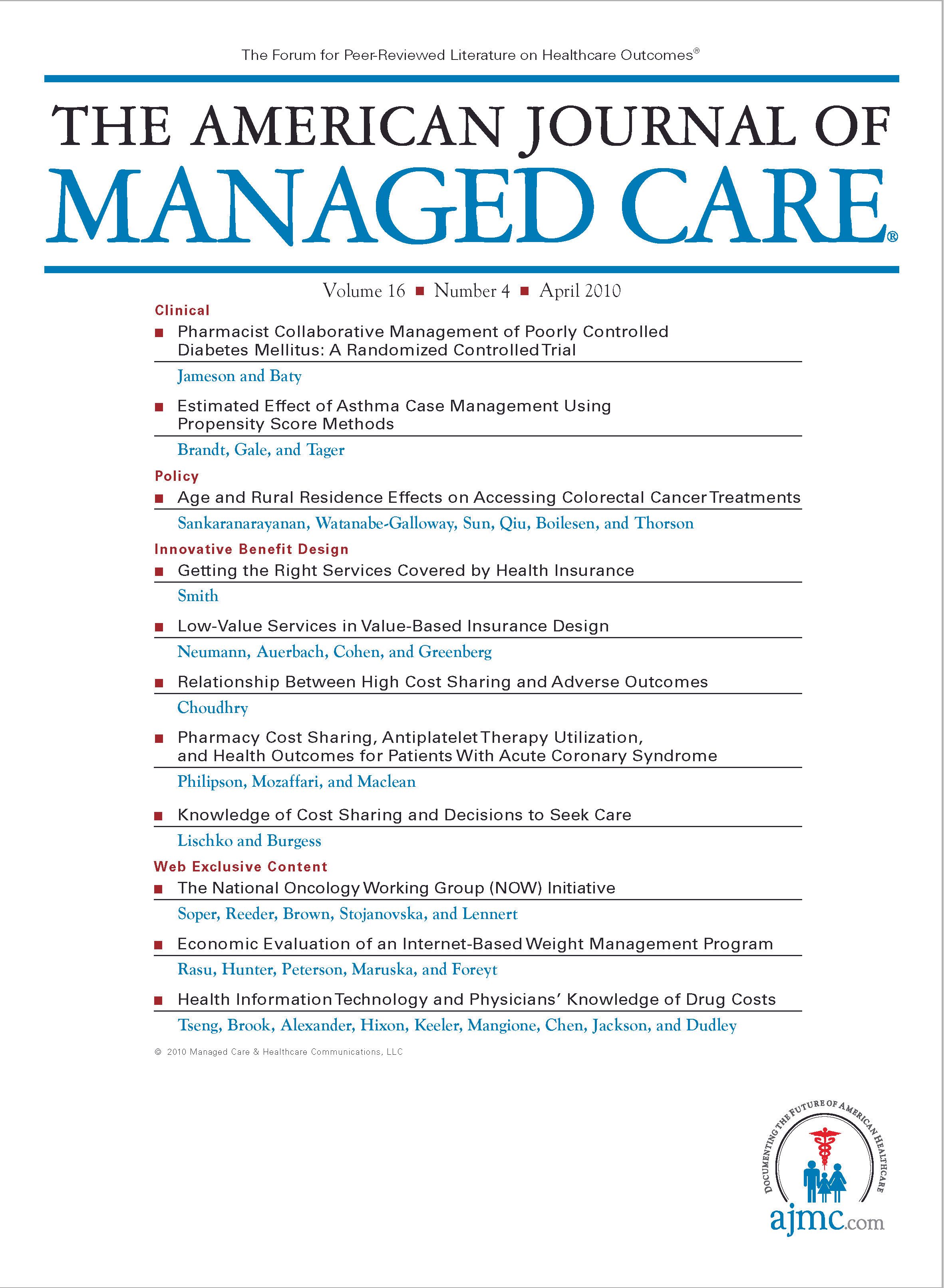- Center on Health Equity & Access
- Clinical
- Health Care Cost
- Health Care Delivery
- Insurance
- Policy
- Technology
- Value-Based Care
Low-Value Services in Value-Based Insurance Design
Building negative incentives into value-based insurance design programs to discourage use of low-value care will involve a number of challenges.
Objectives: To identify potentially low-value services for inclusion in value-based insurance design (VBID) programs and to discuss challenges involved in incorporating such information.
Methods: We searched the Tufts Medical Center Cost-Effectiveness Analysis Registry (www.cearegistry.org) to identify examples of low-value services, defined as interventions that make health worse without saving money or those that cost at least $100,000 per quality-adjusted lifeyear gained. We restricted our attention to papers published since 2000. We supplemented this literature review with a list of services recently rejected by the United Kingdom’s National Institute for Health and Clinical Excellence for coverage by the UK’s National Health Service.
Results: The list of potentially low-value services includes several drugs to treat cancer, as well as other therapies such as left ventricular assist devices and lung volume reduction surgery. Building negative incentives into VBID programs to discourage use of low-value care will involve a number of challenges, including identification of appropriate candidates; the scope of services to be covered (ie, whether VBID should be expanded beyond drugs to address medical devices, procedures, and diagnostics); and whether VBID programs should target specific subgroups.
Conclusion: Identifying noncontroversial low-value services and designing VBID programs to discourage their use will not be easy. However, to fulfill their promise of improving value and moderating cost growth, VBID programs should target low-value as well as high-value care.
(Am J Manag Care. 2010;16(4):280-286)

Specialty and Operator Status Influence Electronic Health Record Use Variation
January 22nd 2026Operators demonstrated specialty-specific differences in electronic health record efficiency, timeliness, and after-hours use, highlighting how workflow and training shape documentation behaviors across medical disciplines.
Read More
Empowering Children and Parents Through Technology: Opportunities, Challenges, and Future Directions
January 15th 2026Digital health platforms improve pediatric care by offering customized, interactive tools for children and parents. They enhance education, support, and engagement while tackling challenges related to access, usability, and privacy.
Read More
Insights Into Patient Portal Engagement Leveraging Observational Electronic Health Data
January 12th 2026This analysis of more than 250,000 adults at least 50 years old with chronic conditions showed lower portal use among older, non–English-speaking, and Black patients, underscoring digital health equity gaps.
Read More
Subjective and Objective Impacts of Ambulatory AI Scribes
January 8th 2026Although the vast majority of physicians using an artificial intelligence (AI) scribe perceived a reduction in documentation time, those with the most actual time savings had higher relative baseline levels of documentation time.
Read More
Telehealth Intervention by Pharmacists Collaboratively Enhances Hypertension Management and Outcomes
January 7th 2026Patient interaction and enhanced support with clinical pharmacists significantly improved pass rates for a measure of controlling blood pressure compared with usual care.
Read More

